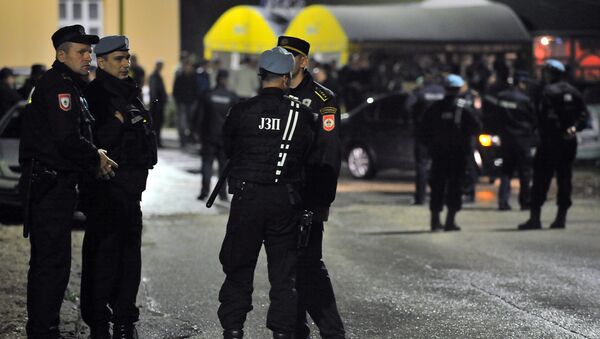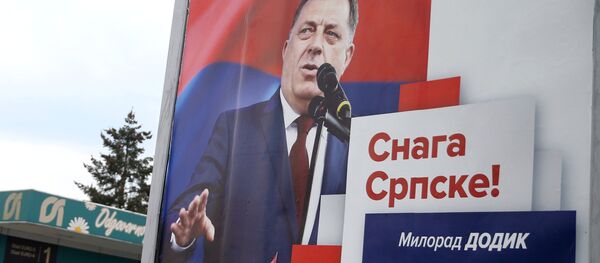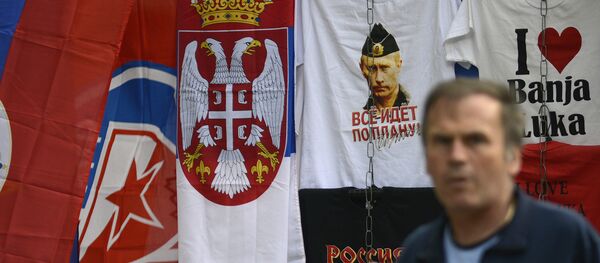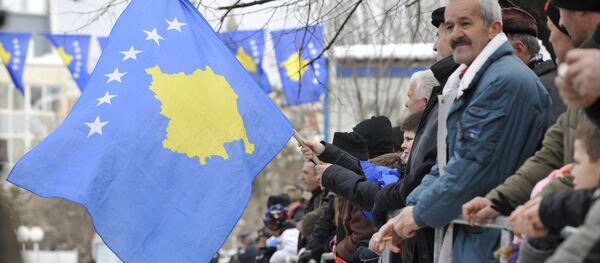On October 2, local elections were held in the municipality of Stolac, about 27 km from Mostar in the Federation of Bosnia and Herzegovina, one of the two political entities that constitute Bosnia and Hercegovina (BiH).
In the course of the elections, several physical attacks were reported and 12 ballot boxes stolen, which resulted in voting being suspended.
Two Bosnian Croats serving on the local electoral commission in the town of Stolac were physically assaulted, and one was still in hospital a week later with serious injuries.
Police have arrested 27 suspects, including members of the Bosniak Party of Democratic Action (SDA) and the Social Democratic Party of Bosnia and Herzegovina.
Salmir Kaplan, mayoral candidate from the Bosniak Party of Democratic Action (SDA) and former Federal Minister for Culture and Sport allegedly physically attacked Ivan Peric, chairman of the municipal electoral commission.
On October 9, Croatia's Deputy Pime Minister Bozo Petrov and Foreign Minister Miro Kovac arrived in Stolac. They reassured Croats living there of support from Zagreb.
"It is in Croatian interests that Bosnia and Hercegovina remains stable, that Croatians living there are protected and equal under the constitution," Kovac said on Sunday.
"With this visit, we are showing that we care about Croatians in Bosnia and Hercegovina and that we will protect them."
Croatia's Deputy Prime Minister Bozo Petrov accused Bosniak politicians of discriminating against Bosnian Croats.
"What has happened in Stolac is the result of many years of policy in Bosnia and Hercegovina, where Croats have been discriminated against, and are constituents only on paper. I consider it unacceptable that a person is attacked who represents the state, and that absolutely nothing is being done. It is very disappointing that not a single political party from the Bosniak establishment has condemned the violence in Stolac," Petrov said.
There remain deep divisions between the inhabitants of Stolac. In 1991 Bosniaks constituted 43 percent of the municipality's population of 19,000, followed by Croats (33 percent) and Serbs (20 percent).
Allegations and counter-allegations of discrimination in the Federation of Bosnia and Hercegovina come amid rising tensions between the Federation and Republika Srpska.
The government of Republika Srpska has protested against the treatment of Bosnian Serbs in the federal judiciary, and the relationship has reached a critical point in the wake of last year's Constitutional Court ruling preventing Republika Srpska from celebrating its own national holiday on January 9.
Republika Srpka President Milorad Dodik held a referendum on the issue in the region last month, in which 99.81 percent of voters voted to keep January 9 as a national holiday.
January 9 is celebrated as a public holiday in Republika Srpska, since it was founded on that day in 1992. The Federation of Bosnia and Herzegovina, the other entity which constitutes Bosnia and Herzegovina, does not celebrate January 9. It celebrates March 1, 1992, the day when it declared independence from Yugoslavia, but this day is not celebrated in Republika Srpska.
The Constitutional Court ruled in response to a legal challenge brought by the Bosniak member of the country's tripartite rotating presidency, Bakir Izetbegovic. While the court ruled against the RS holiday, the Federation of Bosnia and Herzegovina remains free to celebrate its March 1 holiday.







